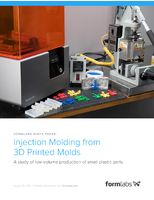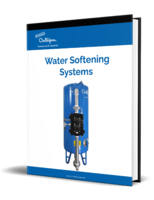Digital I/O Card combines optoisolation and high voltage.
Press Release Summary:

PCI-bus card, Model PD2-DIO-128i supplies 64 digital inputs and 64 digital outputs, each line with its own optoisolator. I/Os are configured in fixed banks of 16 lines. Each line runs at 10 kHz max and works from external supply voltage of 12-32 V. Outputs generate 500 mA/channel peak and 200 mA/channel continuous with max of 1 A/port. Operating on 3.3 or 5 V PCI-bus backplanes, board includes 33 MHz DSP that offloads host processor of supervisory duties.
Original Press Release:
Optoisolation, Industrial Voltage Levels Hallmark High-Density Digital I/O Card
Canton, MA (July 12, 2004)-Combining high density, high-voltage capability and optoisolation, the PD2-DIO-128i is a PCI-bus card that supplies 64 digital inputs and 64 digital outputs, each line with its own optoisolator. The I/Os are configured in fixed banks of 16 lines. All input ports are isolated from each other and the rest of the board, and the same holds true for the output ports. Each input line is protected with a reverse diode and a series resistor, while each output line is protected with a reverse diode.
The input lines on the card run at 10 kHz max and work from an external supply voltage of 12-32V, where each port has its own isolated ground reference and power-supply pins. Thus, input logic High range is from 11V to the level of that supply voltage. The outputs generate 500 mA/channel peak and 200 mA/channel continuous with a max of 1A/port. The outputs likewise work with an external supply voltage from 12-32V, so the output High range is 12V to the level of the supply voltage. Outputs run at a maximum rate of 3 kHz/port.
"Standard logic levels are unsuitable for many industrial and process applications," notes Shaun Miller, president of UEI. "With the PD2-DIO-128i, users can work with industrial voltage levels without the need to purchase separate signal-conditioning modules. Those extra modules, which the user must purchase along with a rack as well as the digital I/O board, typically cost in the range of $25 per channel. In contrast, the PD2-DIO-128i card by itself sells for just $695."
Besides the ability of I/O lines to work with levels as high as 32V, other key features include user-configurable glitch-free startup state for all output ports, 1k 16-bit word FIFOs on both the input and output subsystems, and ability to generate an interrupt on any input line. The board works on either 3.3V or 5V PCI-bus backplanes and sports a 33-MHz DSP that offloads the host processor of supervisory duties, meaning the digital I/O card can maintain maximum performance independent of what the host CPU and OS are doing.
The card comes with the PowerDAQ Software Suite, a collection of drivers and example programs for Windows, Linux and Realtime Linux. The driver set supports all major programming languages as well as all popular test-development environments. In fact, UEI provides unusually broad support for LabVIEW including drivers for the Windows version, professionally written and fully supported LabVIEW driver for Linux, and even drivers for LabVIEW Real-Time. The driver set extends to include QNX and MATLAB and xPC from The MathWorks.
Price and Availability
The PD2-DIO-128i sells for $695 and is available from stock. Full details about this card are available at ueidaq.com/products/pci/pd2-dio/PD2-DIO-128I/. The PowerDAQ Software Suite comes free of charge. For more information about this or about any other UEI hardware and software products, users can go to www.ueidaq.com or call 781-821-2890.
About United Electronic Industries, Inc.
Known as "The High-Performance Alternative," UEI is a supplier of leading-edge PowerDAQ PCI- and PXI-based data acquisition cards, the PowerDNA Ethernet-based distributed data-acquisition and automation system, signal-conditioning accessories and software. In particular, it has emerged as a market leader in the field of hard realtime data acquisition on PCs through its support of realtime Linux implementations and commercial RTOSs. A proprietary protocol on the PowerDNA Cube gives Ethernet-based I/O systems true realtime performance, but the system also runs with conventional Ethernet protocols, as well. Among the firm's major markets are sophisticated production test systems, process monitoring and control as well as research/development.




